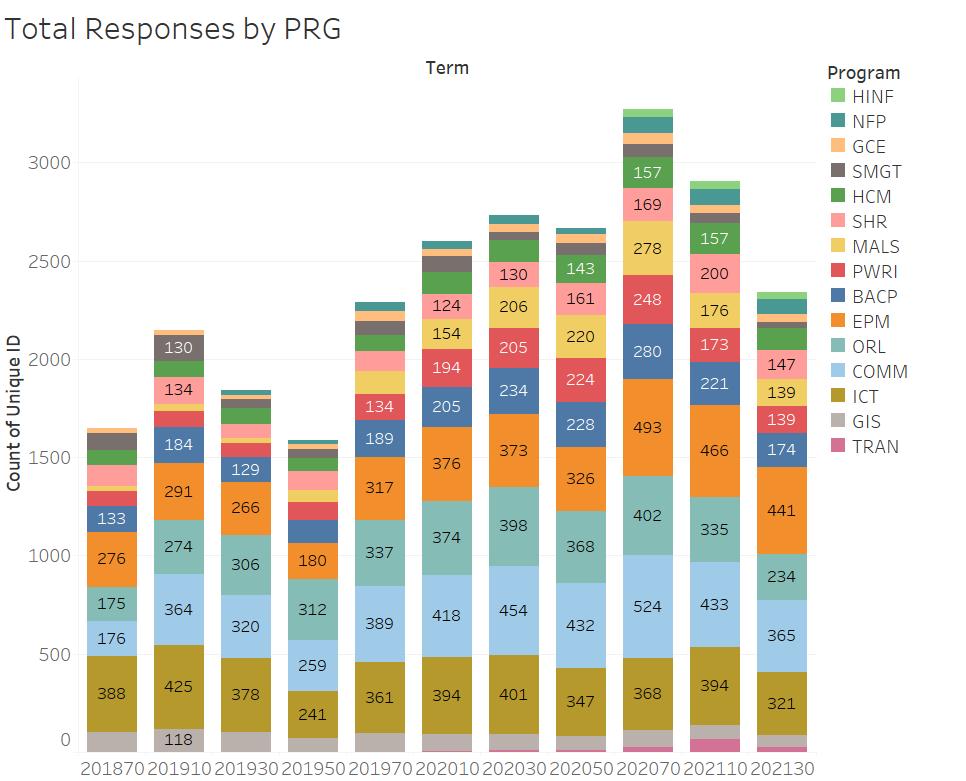Allison O’Grady, Assistant Director of Teaching and Learning, University College and Bobbie Kite, Associate Dean, University College
University College has shifted to a data-informed decision model to better support our student and adjunct faculty experiences. By establishing a strong relationship between those responsible for the learning experience and those supporting operations, the College has been able to streamline processes, increase efficiency, and make the student experience better!
See below for a sample of data-informed projects that have improved the student and adjunct faculty experience in the last year.
Ways We Use Data Related to Faculty Experience
- Adjunct Faculty Professional Development Tracking. University College offers a unique Teaching Excellence Program to support adjunct faculty in development of skills related to teaching delivery, educational technology, and more. We track program participation to offer annual rewards based on workshops attended. In the first year, we were able to confirm that achievement of the GOLD award correlated with more positive instructor evaluations in our courses. In the first year of the program, 32.6% of our current active instructors attended at least one workshop, and 94 instructors earned an award.
- Course Audits and Preparation. We utilize a systematic process to import content, and then audit the content prior to the term to catch any inconsistencies that might impact students. For example, we audited 332 course containers for the summer 2021 term.
- Course Evaluation Tracking. We use a course-evaluation dashboard to easily view course and instructor feedback over time. This helps to inform course re-designs, instructor feedback over time, and specific interventions. In the spring 2021 term, we gathered 2,342 student responses across 15 academic programs. We have seen a total of 26,000 student responses in our data since fall 2018.
- Teaching and Learning Specialist Daily Dashboard. To focus teaching and learning opportunities, we now have access to a daily-updated dashboard that lists new student drops from our courses and flags instructors who are underperforming in key engagement metrics.
- Tracking Course Changes and Updates. We launched a new University College ticketing system to help us track course changes, requests, and updates that assist us to select content and track changes for future terms. Additionally, we use Simple Syllabus as a tool to populate a syllabus library ahead of the term to share with current and prospective students, push immediate syllabus updates, and maintain consistency across courses. So far, we have tracked 550 tickets since we created the system, and 248 tickets were created in the last 30 days.
- Teaching Preferences. Finally, in conjunction with our bi-annual instructor pool job postings, we send out bi-annual surveys to track adjunct faculty preference in terms of their desire to teach given courses and the modality in which the course is offered. Data from this survey is utilized through a dashboard which offers an easy overview of available instructors, the instructor bench for each course, and the different modalities they are able to cover.

